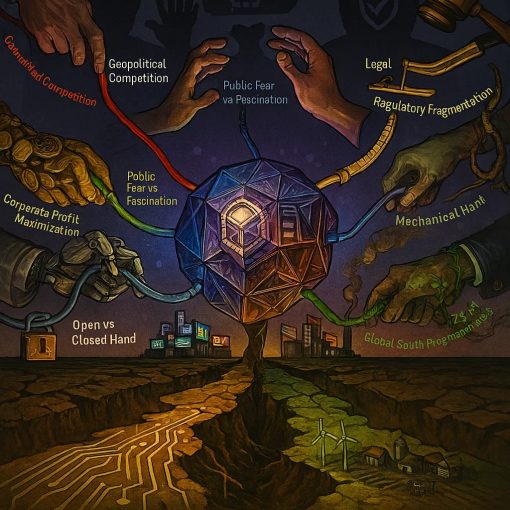The Future of Work in the Next Decade:
Work in advanced economies is changing quickly. Technology, climate targets, shifting demographics, and new social expectations are reshaping how people work and how organisations operate. The article outlines this shift using PESTLE and SWOT analysis, a timeline from 2025 to 2035, and an overview of emerging roles across major industries.
See Substack : The speculative Future of Work in the Next 10 Years for complete article
What is driving the change
Political pressure around data protection, platform labour, and AI ethics will influence work rules. Economic pressure from automation and digital platforms will change how people earn. Social pressure from aging populations and younger workers who value autonomy will shape job design. Technology will create new roles that require AI fluency, cybersecurity awareness, and comfort with automation. Legal reforms will update labour standards for gig workers and AI-assisted roles. Environmental demands will push companies to adopt carbon neutral operations, which will reshape supply chains and workforce needs.
Strengths and risks you should track
You will see faster access to advanced tools, stronger digital infrastructure, and more flexible learning through microcredentials. You will also face skill mismatches, gaps in lifelong learning, and rising mental health concerns. The strongest opportunities are in green jobs, human-machine collaboration, and borderless online talent markets. Major risks include job displacement, inequality, and climate migration.
How the next 10 years could unfold
The article presents a year-by-year view. By 2025, remote and hybrid work will be common and AI copilots will support many desk jobs. By 2026, large scale national upskilling programs will roll out. By 2028, people will learn through personalised systems instead of traditional degrees. By 2029, AI-human teams will shape sectors like healthcare and logistics. By 2030, quantum technologies will create new roles and smart cities will expand infrastructure work. By 2035, human-AI governance models will guide corporate decision making.
How industries will evolve
Healthcare will need bioinformatics specialists, empathy-tech therapists, and AI-supported geriatric care advisors. Manufacturing will need people who supervise cobots, design circular systems, or develop synthetic materials. Energy will open roles for fusion operators and carbon capture auditors. Tech will depend on prompt engineers, quantum app developers, and identity managers. Retail and logistics will use drone controllers and virtual product specialists. Construction will need climate resilient designers and robotic coordinators. Education will demand AI-based curriculum designers. Professional services will shift to AI-augmented compliance and legal roles.
How to use the framework
The article closes with a future work map built around the UK SIC code. It helps organisations plan for new skills, and it gives examples of AI prompts that support foresight work in areas like energy and mental health design.
Why it matters
The coming decade offers a chance to design work that uses technology without losing human values. You can shape better labour models, new forms of collaboration with AI, and climate aligned careers. The direction you choose will determine how people work and thrive in the years ahead.



